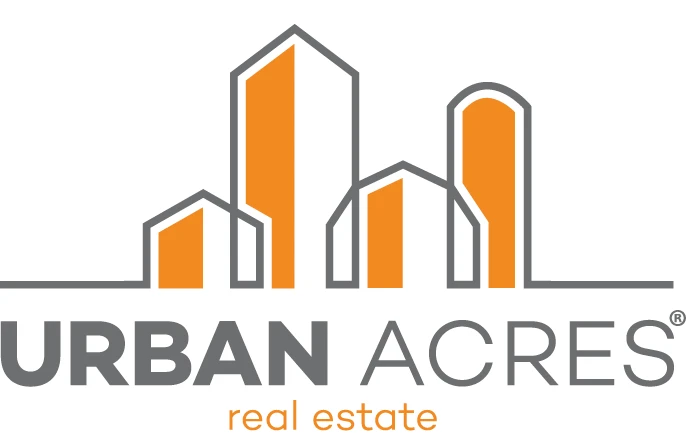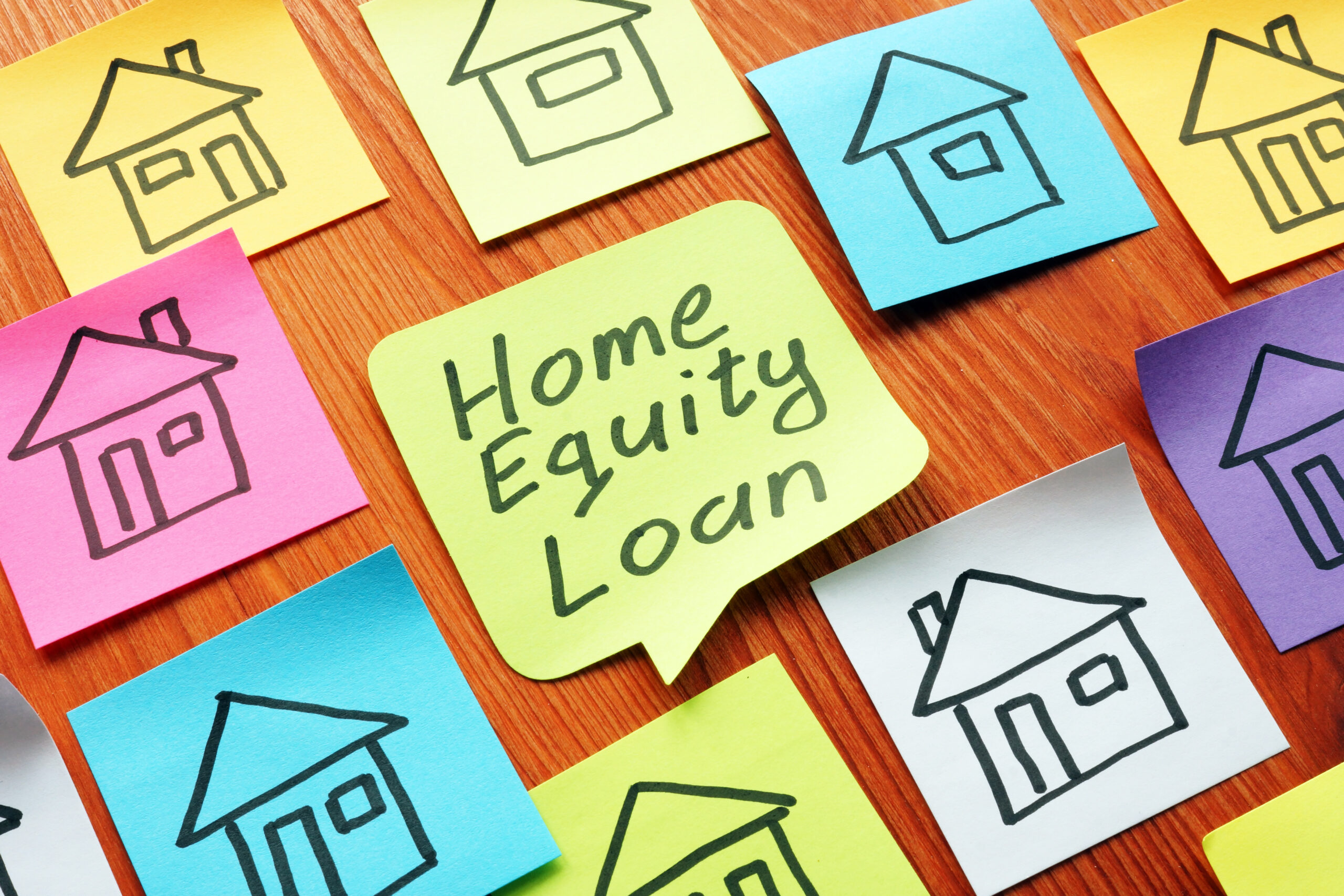When checking out a home listing, people’s eyes tend to gravitate toward the numbers—how many bedrooms, the number of bathrooms, the square footage, and, of course, the price. Whether you’re buying a new home or selling your current one, home pricing is one of the most important parts of the process to understand, and often the most difficult. You want to make sure the home you’re selling—or the one you’re buying—is priced accurately for the best possible outcome. But how is that number determined?
Real estate agents don’t just pull a figure out of thin air. Many calculations take place behind the scenes as agents factor in all the different components that influence a home’s value. Here are a few of those components that determine that final number.
Factors that Go Into Determining Your Home’s Value
Location
Where your home is located is one of the first things agents think about when evaluating a home. In the Corridor, homes in smaller towns tend to be a little less expensive than homes in Iowa City, Coralville, or North Liberty. This is mainly because land prices are less expensive in those less-populated areas.
Of course, where you’re located within a specific town is important, too. REALTOR® Tricia Van Roekel says to think of neighborhoods as “pockets” within a community, and home prices tend to differ between these pockets. Two similar properties in Iowa City with roughly the same square footage could be valued at two different price points, simply because of the neighborhoods they’re in. This could be due to things like larger lot size, more trees, or different amenities in a particular neighborhood.
When using location to determine a home’s price, REALTOR® Natasha Wendt says it’s important to compare apples to apples. For example, it would be inaccurate to compare a single family home in eastside Iowa City to a single family home in North Liberty. On an even smaller scale, it’s inaccurate to compare a new construction single family home to an existing single family home that’s 20 years old, even if they are only blocks apart from each other.
Age and Condition of the Home
This brings us to our next factor: the age and condition of your home. As a general rule, new construction homes tend to be priced higher than existing homes of a similar size. There is the occasional exception to this rule—for example, an older home that has significant historic value.
How well a home has been taken care of matters, too. Van Roekel says many buyers in this area are looking for homes in move-in-ready condition. While they don’t mind having to do small updates to a newly purchased home, they are not looking to do major remodels.
As a result, many buyers tend to look for recent updates, such as new appliances, updated kitchens, new flooring, and fresh (neutral!) paint. Homes with such updates are usually priced slightly higher, though buyers are often willing to pay the extra money rather than having to do the updates themselves. Newly installed big ticket items, such as roofing, furnace and air conditioning units, and water softeners are a bonus, too.
However, when it comes time to sell, Wendt advises not to expect to get a dollar for dollar return from every update you put into your home.
“Updates don’t always necessarily work out on a 1:1 ratio,” says Wendt. “Sometimes it’s a better return, but sometimes it’s about making a difference that will help your home sell, as opposed to being something that hinders its sale.”
Wondering which updates will provide the most return on your investment? Check out our blog on ways to help increase your home’s value before selling.
Size of the Home
When thinking about the size of a home, many people think strictly in terms of square footage. While using price per square foot can be helpful in determining a rough ballpark, as always, the key is comparing like with like. For example, does the home you’re using as a comparison factor in total square footage, or just above-the-ground, finished square footage?
It’s also important to take into account the size of the lot your home sits on. A home on a 3-acre lot will sell for more than a home 0.20-acre lot.
State of the Local Market
Of course, not all of the factors of a home evaluation depend on the home itself. The current market climate plays a big role in determining the price.
When there are more buyers searching for homes than there are homes for sale, it’s referred to as a seller’s market. During this time, sellers can be a bit more aggressive with the pricing of their homes, since there is less competition on the market.
“In a sellers’ market, the home will usually sell close to asking price and sometimes over asking price,” says Van Roekel.
On the flip side, if inventory is high and there are more homes for sale than buyers searching (known as a buyer’s market), sellers need to be more shrewd when it comes to pricing. More homes on the market means more competition in trying to attract buyers. This is where an agent can help ensure your home is placed in the right price range to attract the right buyer.
Outbuildings
And no, we don’t mean outhouses (though it could!). Outbuildings, such as sheds, barns, and unattached garages must be factored into a property’s price. This is especially important for acreages and farms. The size and condition of these buildings are also considered.
Comparative Market Analysis
So how do agents juggle all of these factors at once to come up with a final number? That’s where years of expertise come in—and a comparative market analysis (CMA). A CMA is a tool REALTORS® use to determine the list price of a property. Essentially, a CMA is a deep dive into comparable homes, drawing on all of the components above: location; age, condition, and size of the home; and the local market. CMAs are particularly helpful when trying to determine a sales price an appraiser will agree with, Van Roekel says. It’s also helpful for buyers to assure them that a home is priced fairly.
Van Roekel also adds that while it can be difficult to find comparable properties for a unique home, it’s a good exercise for your agent to find at least 2-3 sales and 2-3 active listings.
Why Is An Accurate Price Important?
It seems like a silly question, but setting the right price is about more than just the money. It paves the way for a smoother transaction for both the buyer and seller and can impact how long a home sits—or doesn’t sit—on the market.
If a home is priced too low, the seller is leaving money on the table. But there are also consequences if a home is priced too high. As Wendt puts it, buyers are smart—together with their agent, they can spot an overpriced home and avoid making an offer.
“The home will sit there for awhile, and eventually buyers—and agents, too—will wonder what’s wrong with it – why hasn’t it sold?” says Wendt. “In many cases, it’s just because it’s too high. If it had been priced correctly from the start, it would likely be under contract already and on its way to new ownership.”
As Van Roekel points out, a seller’s agent’s job is to obtain the highest value possible for the client. However, pricing accurately is more important than pricing high to turn a large profit.
“If we are priced too high, it will sit on the market, and the offers that do come in after 3-4 months will be low,” says Van Roekel.
Overpricing a home when it is first listed could also lead to the need for a price reduction down the road. According to Van Roekel, a price reduction should be considered after a home has been listed for 20-30 days. This is because a listing has the most amount of traffic from interested buyers in the first 3 weeks.
“If the property hasn’t sold in the first 30 days, the owner and the REALTOR® should look at the feedback and determine if there are items that need to be changed in the condition of the home or the pricing of the home,” says Van Roekel.
Why Can’t I Just Look at Zillow for an Estimate?
Many agents don’t recommend using Zillow or their online tool, Zestimate®, to determine a final list price. Why? Zillow and other similar online tools are based on algorithms. This algorithm pulls from public databases about past sales in the area. The algorithm is only as good as the data it pulls from; if the data is inaccurate, your estimate will be, too. Even if the data is accurate, the online algorithm is missing part of the picture.
“Zillow has not visited the home; they don’t know the improvements or condition of the home,” says Van Roekel. “REALTORS® are in the homes. They’ve seen the comparative sales, they understand the values of upgrades and improvements, and can better price the home than an algorithm.”
While Wendt admits that online tools have gotten better over time, she also says that REALTORS® will always have the advantage over these types of tools. REALTORS® know the local market, are on top of the latest industry trends, and understand the seasonal fluctuations in the market in our area. They also know—and often even grew up in—the neighborhoods in which you’re buying or selling.
“Nothing can substitute a solid ‘boots on the ground’ knowledge base you get with a REALTOR®,” says Wendt.
Even on Zillow’s website, they recommend only using their estimate tool as a starting point. They advise users to supplement their assessment with a professional appraisal and a comparative market analysis from your real estate agent.
Need further proof not to rely solely on an online estimate? In 2016, Zillow’s CEO Spencer Rascoff sold his home for $1.05 million, much less than the $1.75 million the Zestimate® had valued the home at.
To “Sum” It Up
In a nutshell, home pricing is a complex yet important part of the selling process. Local knowledge and agent expertise can go a long way in determining an accurate price and setting your transaction up for success.
Feeling overwhelmed by the thought of trying to price your home for sale? Let us take the responsibility off your shoulders! One of our 50+ agents would be happy to help ensure your home is listed for the right price. Looking to buy and want to make sure you get a fair deal? Get started by reaching out to an agent today!





